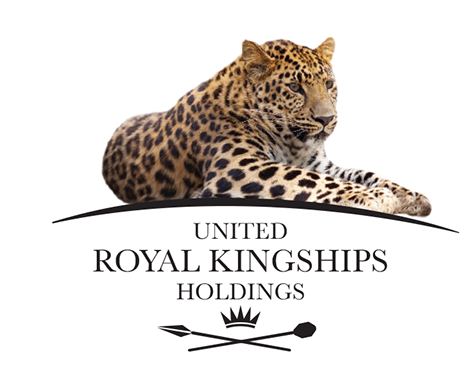







INVESTMENT PHILOSOPHY
URKH is expected to create significant growth and returns in the asset base of the investments it will manage. The returns from investments should be sufficient to allow distribution of dividends to URK Trust. This will be achieved by effective and consistent application of sound investment principles. Investment strategies that detail specific courses of action to be taken in order to implement the Investment Mandate, will be implemented by URKH.
The investment philosophy addresses the required investment yield and capital growth expected by the shareholders. The directors of URKH would have to choose between investments which offer a moderate yield with a higher capital growth, against investments which offer a higher yield and a moderate capital growth. The latter option, which forms the basis of the investment philosophy, offers shareholders a means of investing cash yields in URK Trust developmental projects.
INVESTMENT OBJECTIVES
Our investment objectives are anchored in the premise that “Land is the economy and the economy is land”. Therefore land plays an integral role in shaping the following investment strategy goals:
- Corporatising the rural economy by leveraging its unique resources, which are mainly land and human capital (people and leadership).
- As part of restoration, justice and resolution of the land question; returning of the land to full control of the rural communities, so that it can be used for the benefit of its owners.
- Engaging the developmental and financial institutions and the private sector in developing policies which target investment in the rural areas.
- Leveraging the abundant platinum, chrome, (other PLG group of minerals), gold, diamonds and other resources, including forestry, commercial farming and fisheries that are found in rural communities, as proposed by Government to strengthen the comprehensive rural economy.
LEVERAGING
Leveraging refers to the use of various sources of borrowed capital to increase the potential return of an investment, thereby boosting the Net Asset Value growth. URKH will explore leveraging. The introduction of debt, combined with compounding funds (reinvestment of funds) will lead to a higher growth rate of the Net Asset Value of the company.
INVESTMENT PRINCPLES
ASSET ALLOCATION STRATEGY
With the aim of balancing the investment risk and creating diversification, the URKH will develop an asset allocation strategy in line with the liquidity and financial position of the company at any given time. The strategy will detail how assets will be allocated across the various categories, such as equities, bonds, properties and cash.
DIVERSIFICATION
A diversification strategy will be adopted to reduce investment risk. Diversification should be categorised by investment sector and geographical location. Effective diversification should, in the long-term, lead to a portfolio with higher average returns and a lower risk, compared to any individual investment found within it.
PERFORMANCE MEASUREMENT
To assess whether value is being added to investments; (i) the Capital Asset Pricing Model (CAPM) will be considered for evaluating equity investments and; (ii) a benchmark rate comprised of an average of 50% weighting of the daily overnight South African Futures Exchange (SAFEX) rate and a 50% weighting of the 6-month closing Johannesburg Inter-Bank Rate (JIBAR) which is the most preferable for cash and cash equivalents. Quarterly performance assessments will be a natural part of the undertaking.
INVESTMENT OPPORTUNITIES
URKH is a long-term investor. Our investment strategy is designed to consider a long-term view of the macro environment. Our strategy is to build a portfolio around our kingdoms, kingships and royal leaders’ (amaKhosi, Marena, tiHosi, vhoThovhela, Dikgoshi) requirements, diversified by sector, geography, duration and size.
Upon its launch, the holding company will already have concluded investments in a gold mining refinery and property and be close to finalising a significant transaction with a major bank in the financial sector. There will be a formal announcement to this effect early next year.
With 2017 marking the renewal of the African Renaissance with the progress we have made so far, we can say with conviction that the future of URK Holdings looks good. We intend delivering on our mandate, thereby meeting the developmental needs of our clients and their communities.
URKH follows a robust investment strategy which results from its investment philosophy and stretches across the asset classes mentioned below:
FINANCIAL SERVICES AND BANKING
South Africa’s legacy of discrimination continues to exclude millions of people from meaningful participation in the economy, reinforcing unemployment, poverty and inequality. Although progress has been made in transforming the financial sector, more needs to be done to broaden access through more affordable financial services, improving market conduct, ensuring employment equity at top management levels, providing procurement opportunities and transforming ownership structures.
MINERAL RESOURCES AND BENEFICIATION
The latest Mining Charter, published on 15 June 2017, has set the target for black ownership at 30%, and emphasises that owners must be black entrepreneurs, employees and communities. Black entrepreneurs must hold a minimum of 14% of the 30% black ownership requirement in a mining company. Employees and the community must each hold at least 8% of the 30%.
INFRASTRUCTURE SERVICES
The Department of Public Works is about to finalise the Baseline Study on the Transformation of the Property Sector in order to realise the goals of radical economic transformation. Infrastructure serves as an important socio-economic lever to drive capital formation, investment growth and social development.
AGRICULTURE AND AGRO-PROCESSING
Great strides have been made in the redistribution of land over the past 23 years. There is, however, a strong need to accelerate progress. The Expropriation Bill is yet to be finalised. The distribution of agricultural land is still skewed and does not represent the demographics of the country. In South Africa today, only 7.4% of agricultural land is in the hands of black people, while Africans own a mere 1% of agricultural land.
FUEL RETAIL
The oil industry is divided into upstream and downstream activities. Upstream refers to the exploration and production of crude oil. Downstream refers to the refining, transportation and marketing of end-user products. The Department of Energy is responsible for ensuring the secure and sustainable provision of energy for socio-economic development. The South African fuel retail industry has grown considerably in recent years. In fact, it is one of the few sectors to weather the recently experienced downgrading, Rand volatility and negative growth rates.
MANUFACTURING
There is no other sector quite like manufacturing in creating large amounts of employment. This sector has the benefit of providing jobs which develop intellectual property in people. It is only by building a sustainable manufacturing-driven economy and cracking the code of diversification of the economy that inclusive growth can be achieved. South Africa needs to have manufacturing as a large part of the economy.
HEALTH SERVICES
The promulgation of the Traditional Health Practitioners Act (22/2007) requires respectful engagement between bio-medical and traditional health practitioners. There is no doubt about the resilience of indigenous knowledge, practice and experience. What is needed is the ‘reclamation’ of traditional medicine and healing, through policy, legislation and research. This will prioritise needs of a large proportion of South Africa’s patient population. A merged, complementary system of plural healthcare will benefit both arms of healthcare practice, the patients themselves and other countries in the African region that seek to institutionalise traditional healing.
TOURISM
More inclusive growth is needed through radical economic transformation so as to address the inequality in the tourism sector. Ultimately the success of tourism will be judged by how much it contributes towards Government’s efforts to substantially reduce poverty, inequality and unemployment in South Africa. There is a need to exploit Government transformation measures which includes amending the Tourism BBBEE codes. This will address imbalances in the ownership of tourism enterprises, develop skills and stimulate suppliers.
RETAIL
Retail is the third-largest sector of the South African economy and is dominated by several high-profile organisations. It is an ever-growing sector which contributes a major portion to the economy and to the transformation of the country. The retail sector, unlike other industries, does not have a transformation charter with set targets to be achieved by particular dates. There is a need for full partnership with black-owned businesses and retailers. Unfortunately, the preferred approach at the moment are cursory enterprise development programmes and broad-based employee share ownership programmes. The retail sector remains the least transformed sector and yet it enjoys the largest buying power of black people.
MEDIA
The advertising industry plays an important role in any economy. It is a source of great creativity, innovation and entrepreneurial flair, which can be harnessed to transform livelihoods in any country. In 2016 alone, nearly R50 Billion was committed by some of the leading brands to ad spend. However, concerns have been raised about the competitiveness of this high-value industry. A study by Blueprint Group (Pty) Ltd (2017) concluded that there are anti-competitive practices at play in the advertising industry. This stems largely from the composition of the industry and distribution of ad spend revenue. It seems to be skewed in favour of agencies with international alignment. This is unfortunate and appears to be at variance with the espoused transformational agenda of the economy.



© United Royals and Kingdoms of South Africa Holdings (Pty) LTD

